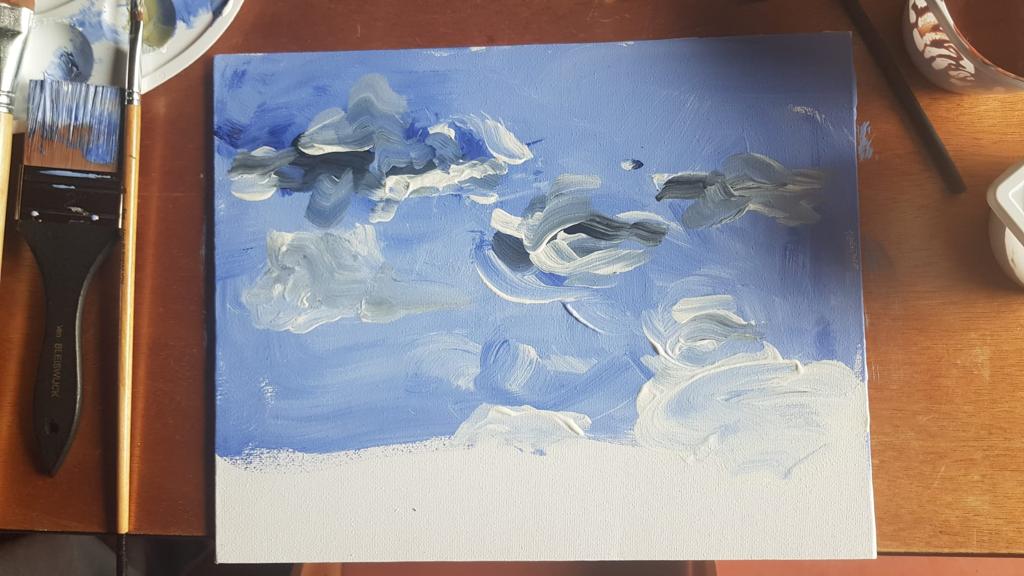Epidemiology

“Can Parkinson’s make you an artist?”
Artistic blossoms in people with Parkinson’s disease: an epidemiological investigation of person-, disease-, and contextual factors and experienced changes in creativity
In this epidemiological survey study we aim to identify links between Parkinson’s disease and experienced changes in creativity on an epidemiological level. An emphasis is placed on the prevalence of experienced changes in creativity. This longitudinal study started in 2021 during a scholarship of Blanca Spee, was prolonged in 2022 starting with the project “Unlocking the Muse” and is since then running as a longitudinal study with diverse foci per year. The study is conducted in a cohort of over 900 people with Parkinson’s in the Netherlands. In addition to the prevalence of perceived changes in creativity, demographic, person- and personality-related, as well as contextual factors, will be investigated. This study is both a longitudinal survey and a questionnaire study. In a sub-sample, specific questions are also surveyed cross-sectionally. The study will be conducted for about 5 years and is part of the PRIME Parkinson NL project – PRIME Parkinson NL project.
Epidemiological study in Austria
We established the epidemiological study in Austria and are providing the same survey, in German and English, in Vienna. The data collection started in autumn 2022 is proceeding since then.If you or a loved one has Parkinson’s disease or you are a doctor/researcher interested in Parkinson’s disease, please contact us: kreativpark.psychologie@univie.ac.at
Epidemiological investigations in other cohorts (people who are taking dopamine medication reduction dopamine levels)
Current studies are in the process of writing study protocols, reaching out to other study cohorts for comparison studies as well as potential other countries. The epidemiological study is planned to be conducted with people with Huntington’s disease in Canada, Montreal starting in 2023.
Therapies & Interventions

“Being creatively active gives me the feeling of freedom.”
Art-based Intervention: Unlocking the Muse in People with Parkinson’s
In this aspect of the project we are developing together with a team of transformative learning researchers, creative therapists, and artists an art-based intervention program. Within this specific program, people with Parkinson’s disease will participate in sessions performing in different domains of creative activities and within an artistic context. Our aim is to distill the active ingredients for transforming a person’s mindset (openness to learn, engage, reduced anxiety to apply and try) and skill-set to learn that engaging in creative activities is a tool for enhancing individual quality of life in a self-empowered manner. Further impact factors considering diverse aspects of quality of life, such as happiness, self-efficacy, and developing coping strategies are explored. The intervention started in 2022 with several pilots and will reach its full program in autumn 2023. The intervention will be evaluated in RCT studies and developed for two years and translated to different domains for international application starting in 2024.
Upcoming Online Art intervention program | Art Unbound: A 3-phased Sequential Feasibility Study of an Online and Participatory Visual Art Intervention Course for People with Parkinson’s
This feasibility study delves into the advantages of an online art-making course tailored for individuals with Parkinson’s disease (PD). Given the challenges of in-person sessions due to motor impairments and homecare duties, we’re leveraging this predominantly online course to deliver impactful arts-based interventions.
Art Perception Study: Investigating Differences of Visual Art Preferences in People with Parkinson’s
This study will investigate whether people with Parkinson’s disease have a preference for specific visual artwork and show differences in perceiving ambiguity in art compared to healthy people. These artworks differ along various artistic attributes. The research is based on perceptual changes in people with Parkinson’s disease and has the long-term goal of optimising and individualising visual cues as compensation strategies overcoming severe motor issues such as freezing of gate. The study is currently in the pilot phase and started June 2023.
Neuroscientific empirical studies
Unraveling the Cognitive Connections between Parkinson’s, Art, and Creative Engagement
This study is a longitudinal study with the aim to investigate drug influences on changes in creativity and art making in people with Parkinson’s disease. Specifically we want to gain deeper insights into the complex interrelationships between Parkinson’s disease, cognitive flexibility, medication, and dopaminergic-induced behavioural differences, potentially guiding diagnostic and therapeutic strategies and improving our understanding of cognitive differences in people with Parkinson’s disease on the level of creativity. Participants will be followed for a time-period of three years, starting from the moment when they are diagnosed (de novo, no medication). During a time-period, participants will complete, on a regular base, a test battery containing a diverse set of creativity, cognitive/perceptual as well as art making tasks. The test battery is still under development. This study will ondergo an pilot phase of half a year testing the applicability of the battery in the specific Parkinson’s cohort starting September 2023.
Investigating the interplay of cognitive flexibility, creativity, visual art making and neurostimulation in healthy people
These studies are using the knowledge from existing science and currently conducted research in people with Parkinson’s to stimulate diverse brain areas (LIFUP) as well as using neuropsychopharmacological techniques to investigate the neurobiological underpinnings of the “artistic creative brain”.
The same study design also conducted in healthy people will have a more in-depth focus on visual art making, considering skills in visual art making, copying, drawing emotions and visual art perception. Results gained from this empirical investigations will then be interconnected to the research focusing on cognitive flexibility and creativity as well as the research conducted in people with Parkinson’s.
This will enable to develop a thorough model of involved brain-networks contributing to the “artistic creative brain” and how brain networks and behavioural changes differ between people with or without neurodegenerative diseases.
Projects in development
ParkinsonNet in Austria
The objective of this project is to establish the general steps for setting up a person-centered multidisciplinary healthcare innovation platform (see also healthcare model, see Bloem, et al., 2017). This innovation is based on the successful approaches in the Netherlands – called ParkinsonNet. Our aim is, in the following years, to study Austria’s healthcare infrastructure in the field of Parkinson’s disease along a stakeholder analysis, insurance system analysis, etc., and to gain collaborators in the healthcare sector. Our projects will enable the first step towards laying the foundations for a ParkinsonNet center in Austria.